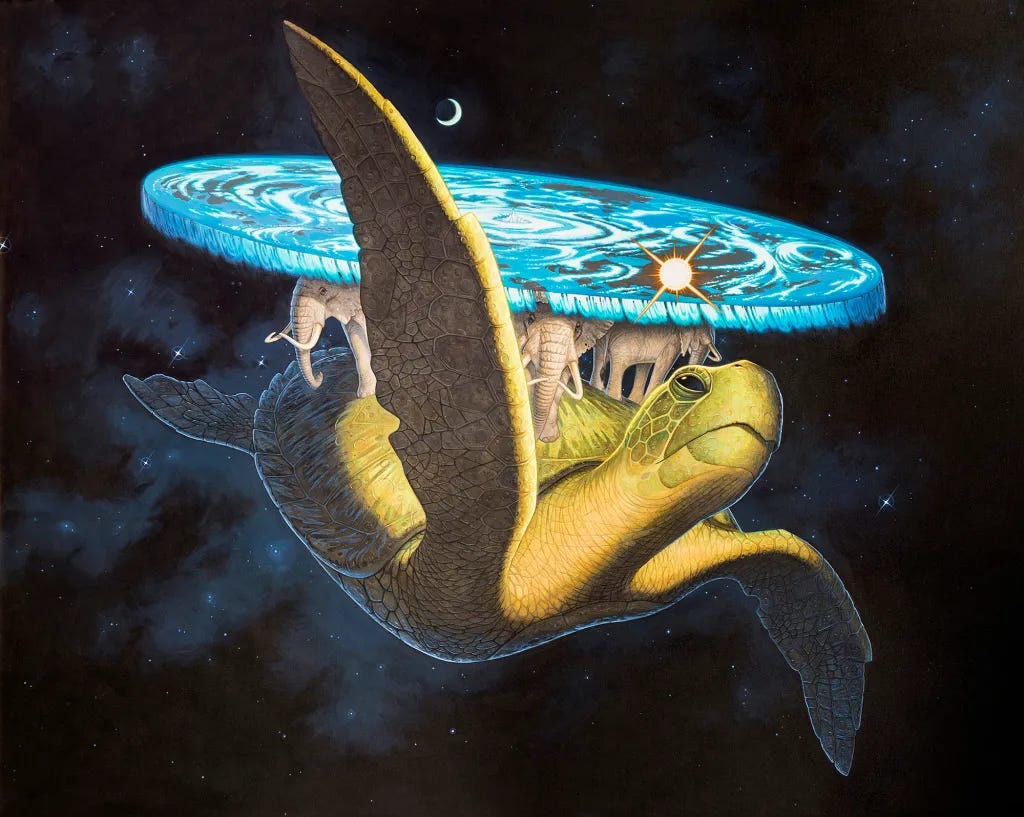I'm willing to bet that every single one of you immediately thought of Terry Pratchett when you read this headline. I think that most of us will agree that the footnotes in Discworld are by far the funniest part of the books. Without the footnotes, they'd be above-average fantasy parodies, but they wouldn't be the absolute masterpieces that they are.
I love footnotes in fiction. To be clear, there are two sorts of footnotes.
You have academic footnotes, which provide context, background, or explanation. For example, you might have translator's notes which clarify a particular piece of the text. Or you could have historical notes that help you understand what's going on. My rather magnificent copy of the Annotated Arabian Nights consists of more footnotes than text in some places! It tells me everything I could possibly want to know about the different versions of the text and the source materials, explains the literary techniques being used, gives me details on the historical people and places, and much more.1
The Sharpe and Flashman novels are also peppered with footnotes. Much of the time they simply add historical detail or references, but where they really shine is when Cornwell or Fraser is making you aware that some unbelievable bit of the plot is actually based on fact. That not only deepens your enjoyment of the story, but also helps you suspend your disbelief in some of the authors’ more outrageous fabrications.
That type of footnote can be really interesting from an intellectual point of view, but those aren't the ones I'm particularly interested in from a writing point of view. In general, they're not much different to adding footnotes to a white paper or putting links into a blog post.
The footnotes that I like are commentary often delivered with a large dose of humor. They're a great device for breaking the fourth wall, because the author can inject himself or herself into the narrative and address the reader directly. As I said at the beginning of this, Pratchett is the best known exponent of this, but there are others.
A couple of months ago, I wrote about Michael Crichton's Eaters of the Dead, which uses footnotes as a critical part of the narrative.2 And recently I reread a novel I loved as a teenager, Shibumi, by Trevanian, which has some great footnotes in. For example, at one point, he skips over a key part of an action scene: our protagonist, a sort-of-ninja, kills a villain, but we have no idea how. In a footnote, the author explains that he used a common household item to commit the murder, and it would be irresponsible of him to tell us what it was or how he used it. In another note, during a climbing scene, Trevanian makes scathing remarks about the film adaptation of another of his books, The Eiger Sanction, starring Clint Eastwood. These footnotes aren't in the slightest importance to the plot, but they do set the tone of the narrative in a very unusual and effective way.
As I've mentioned several times previously, I really enjoy the feeling of being told a story by a storyteller. Most of the time, authors achieve this by using a first person narrator, or by using second person to address the reader, but this is all within the context of the main narrative.3 Using footnotes creates a different perspective. In a footnote, we’re not being addressed by a fictional narrator, but by the actual author. It's almost as if they're in front of us, reading the book aloud to us, and then breaking off to make little remarks.
It's a technique I'd love to see more of, but I guess there are two reasons why it doesn't happen. First, it requires a very deft touch and the right type of story. I’ve thought about it many times, but I don't think any of the things I'm working on really lend themselves to this, and I don't think I have the skill to pull it off. And second, I guess we're all worried about appearing to rip off Sir Terry.
Absolutely superb edition: very highly recommended!
I can’t believe how often I keep referring to this book. It’s clearly had a much greater impact on me than I realized at the time.
Oddly, I have memories of the footnotes in The Princess Bride. Except… there aren’t any. I imagined them. What I remember as footnotes were actually part of the narrative. Weird.




Oh, man, I'm so glad you love footnotes, too. I feel exactly the same way about them. Larnark by Alisadar Gray has some absolutely crazy funny footnotes. It would be good to create a list of novels that have these kinds of footnotes.
Quite a few of the footnotes in Jonathan Strange & Mr Norrell are short stories in their own right, and in many cases a footnote there is packed with more ideas than some authors would spin out into an entire novel.